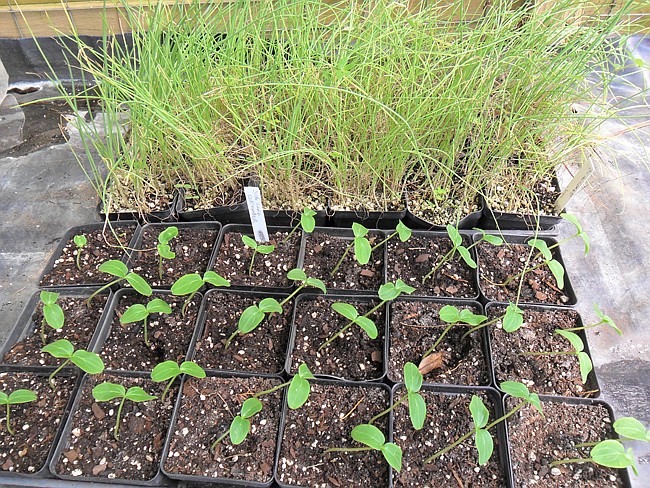- April 24, 2024
-
-
Loading

Loading

Local nonprofit Our Whole Community and the Winter Park Housing Authority have partnered up to help improve seniors’ access to healthy foods.
The two organizations received a grant from Healthy Central Florida for a project to provide grow boxes to the seniors at Plymouth Apartments in Winter Park. Grow boxes are containers that gardeners can use to grow fresh fruits, vegetables and herbs when they don’t have the space for an outdoor garden. The project, which cost $975, will begin this fall and Our Whole Community and the Winter Park Housing Authority will give the seniors 10 grow boxes, each 28 inches long, to use with soil, fertilizer, seeds, a planting guide and instruction manual. They’ll also offer five one-hour informational sessions from a professional gardening consultant.
You can purchase your own grow box, which includes the box, fertilizer, instructions and planting guide, for $35 online at: ourwholecommunity.org/garden/mobile-garden-boxes/. The proceeds go to nonprofit Our Whole Community, an organization with a mission to make Central Florida residents healthier. Because of Florida’s summer heat, the best time to start your garden is in September when temperatures are milder, but in August a gardener could grow watermelon, pumpkin and winter squash. Here’s a planting guide to print: http://bit.ly/1smTgdT
“For a little investment of dollars, I feel like we’re helping to provide healthy food to seniors in Winter Park, and giving them the training so that’s it’s sustainable and actionable in the future,” said Leah Nash, executive director for OWC. “So the hope is that they’ll get the grow boxes, we’ll teach them how to use them and then they’ll use them over and over and over again, so that they can have access to at least some healthy food right on their doorstep.”
Nash and Patricia Rice, the executive director of the WPHA, focused this project on seniors because they are more likely to experience challenges to obtaining healthy food. While the apartment complex does offer a shuttle, sometimes they don’t have transportation to the grocery store — and the closing of the nearest Publix adds to that challenge — they are on a limited budget, no longer want or can cook for themselves, or are just unfamiliar with the taste and preparation of fresh produce.
Bob King, president of the resident association at the Plymouth Apartments, said he finds that many residents are just eating TV dinners. He wants the grow boxes to help residents learn about healthy foods and to try new produce they might not realize they’d like. King has diabetes and high blood pressure, likely common health problems for other residents, and said that a grow box full of fresh herbs would help the seniors flavor their food without relying on salt.
“The people at this age need education about how to eat properly because so many of them just grab whatever they can, a frozen meal, a sandwich, but they need to learn that there’s vegetables available and vegetables are good for you,” he said.
Kristina LaRue, a registered and licensed dietician at Joyful Nutrition in Winter Park, said that seniors would receive many benefits from more fresh fruits and vegetables in their diets, including improving immunity, decreasing pain and inflammation, lowering cholesterol and controlling weight. A healthier diet also decreases their risk and lowers symptoms for preventable diseases, such as heart disease and diabetes.
LaRue suggested eggplant, kale and bell peppers as some of the most beneficial vegetables the seniors could cultivate, all of which can be grown in the grow boxes this fall and winter.
Rice said that growing their own food would likely instill a sense of pride in the seniors, pride that would push them to try new foods or incorporate more vegetables into their diets.
“I see this as them taking some control over what they’re eating and being able to produce something that they did themselves, and that when you do that you’re more inclined to say, ‘I’m going to eat this because I grew it myself, it’s sitting right here and it’s mine,’” Rice said.
It’s also an opportunity for the seniors to enjoy a new activity, or one they used to love in the past, but don’t have space for anymore. Rice said that the Plymouth seniors are always interested in learning new skills, and if the program expanded to other WPHA neighborhoods — a hope of the organizations — the Plymouth gardeners could be the teachers and share those new gardening skills with others.